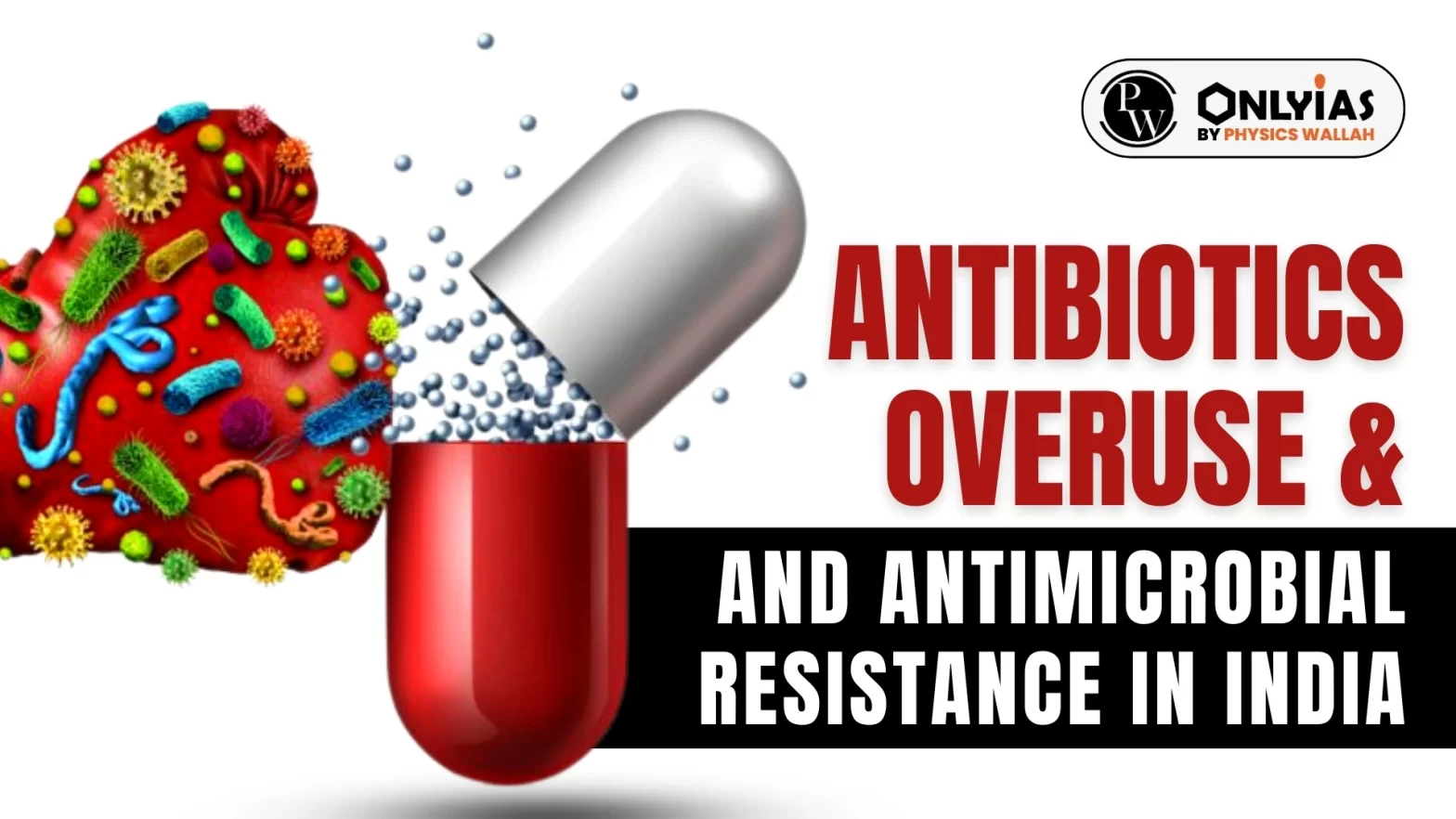Context: This editorial is based on the news “Drug war: On use of antibiotics and antimicrobial resistance” which was published in the Hindu. Recently, a study, named ‘First Multicentric Point Prevalence Survey of Antibiotic Use at 20 NAC-NET Sites India 2021-22’ has been conducted by the National Centre for Disease Control under the Health Ministry, which has come out with concerning results.
| Relevancy for Prelims: Antibiotics, and World Health Organization (WHO).
Relevancy for Mains: Antimicrobial Resistance (AMR)– Challenges and Way Forward. |
Concerns Raised by the Survey on Use of Antibiotics
- Over 70% of the patients in tertiary-care hospitals across 15 States and two Union Territories were prescribed antibiotics and over 50% of antibiotics prescribed have the potential to cause AMR.
- 55% of the patients surveyed were prescribed antibiotics as prophylaxis (preventive).
- Only 45% were prescribed antibiotics to actually treat infections and of this, only 6% were prescribed the drugs after identifying the specific bacteria.
- A sort of misuse and overuse of antimicrobials cause the development of drug-resistant pathogens that in turn pose great risk to life and exacerbate morbidity.
Concerns of Antimicrobial Resistance (AMR)
- Evolving for Resistant: AMR occurs when pathogens evolve, become resistant to drugs, and stop responding to antimicrobial drugs.
- While it is the nature of pathogens to evolve, this ever-increasing crisis is exacerbated by unsound medical, and animal husbandry practices.
- Data by the World Health Organization (WHO): As per WHO, the bacterial AMR was directly responsible for 1.27 million global deaths in 2019 and contributed to 4.95 million deaths.
- AMR makes infections harder to treat, renders other medical procedures and treatments such as surgery, cesarean sections and cancer chemotherapy much more risky.
- Infectious diseases specialists and critical-care experts have warned over AMR, calling for rational prescription of antibiotics, and curbs on the use of drugs to promote growth in animals and plants.
Steps that need to be Taken For Administration of Antibiotics
- Urgent measures are required to develop new similar antibiotics.
- Steps should be taken to make drugs more equitable.
- Need to Regulate the use of drugs by doctors and the government.
- Patients need to maintain patience with the medical process rather than expecting immediate relief to their ailments.
- Need for strict regulation for the use of antimicrobials.
- Need to promote and fund research on newer antibiotics.
Must Read: Casgevy Therapy
| Prelims Question (2020)
What is the importance of using Pneumococcal Conjugate Vaccines in India?
1. These vaccines are effective against pneumonia as well as meningitis and sepsis.
2. Dependence on antibiotics that are not effective against drug resistant bacteria can be reduced.
3. These vaccines have no side effects and cause no allergic reactions.
Select the correct answer using the code given below:
(a) 1 only
(b) 1 and 2 only
(c) 3 only
(d) 1, 2 and 3
Ans: (b) |
![]() 6 Jan 2024
6 Jan 2024
